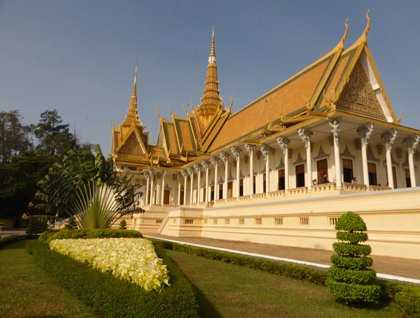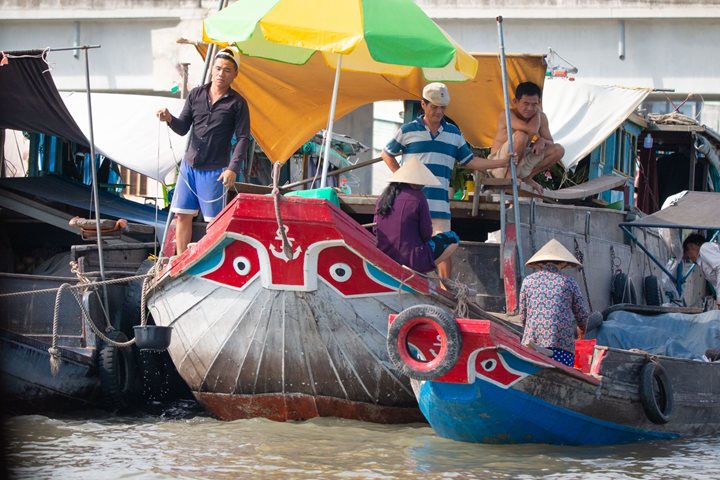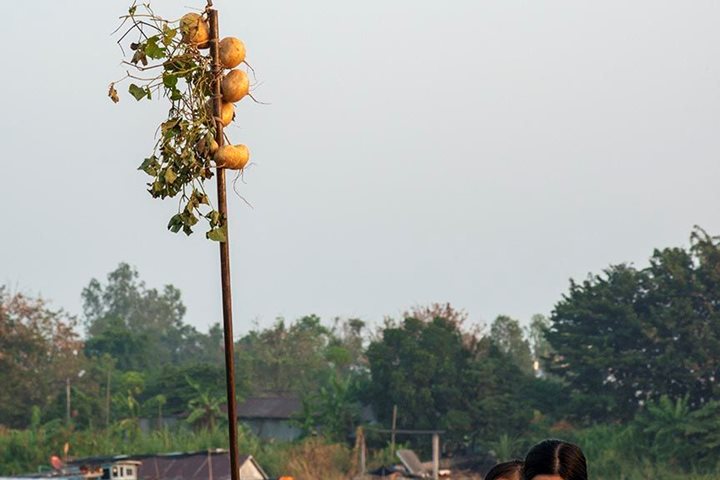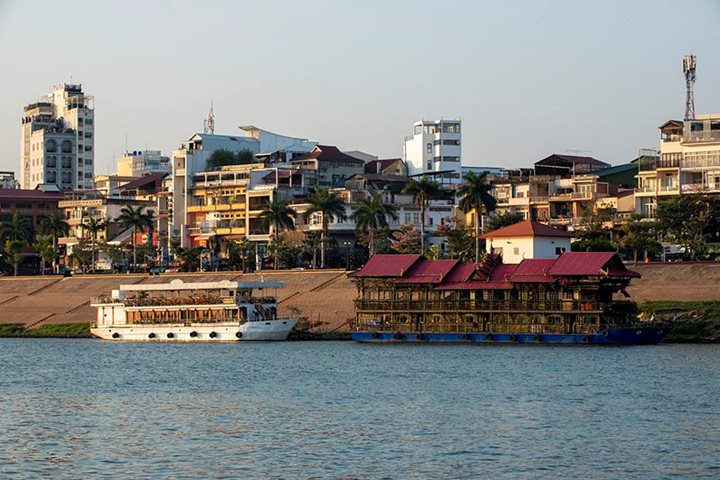A quiet night at anchor rapidly changed with the coming of the dawn. The sounds of rural Cambodia now could be found only in a lonely rooster’s call. Instead the roar of morning traffic greeted our ears.
It seemed as if there was only one way to deal with the city and that was to jump right in to the rush. Enthroned in our bicycle-propelled carriages, better known as “cyclos,” we competed with motorcycles, buses, SUVs, and pedestrians on the roadways. Somehow our handlers navigated the chaos skillfully, depositing us at the entrance to the Royal Palace grounds. Whether many of us would attempt the same route on our own is doubtful.
The palace and a myriad of supporting buildings dominate the waterfront of Phnom Penh near the junction of the Mekong and Tonle Sap Rivers. Inside the walls, the colors of green and golden prevail. Roof-tops sweep skyward like dragon tails and nagas ornament the balustrades. It seemed as if it could be a peaceful place to rest on the green grassy lawns or sit beneath the shady trees and watch the life of royalty. But regalia and artifacts drew us indoors to attempt to learn of the customs of the past. What wealth and richness is still retained within these walls!
A shocking contrast was to be found this afternoon as we were tossed back in time to the era of the Khmer Rouge. As westerners it is hard to comprehend the terrors of slightly more than forty years ago. One could stand in the courtyard and stare at the empty buildings of Tuol Sleng and see nothing more than a school with echoes of children’s voices. But barbed wire and razor wire surrounded us and the balconies were strung with fearsome barricades of the same. Inside today rests frightening instruments of torture and the faces of hopelessness and pain. Thousands passed through these doors and their screams filtered through the empty streets of Phnom Penh with only chickens and cows to hear their cries. Only seven of possibly twenty thousand survived their internment here. Their final resting place, Choueng Ek, has a pastoral feel today but sobering evidence remains hidden beneath the rolling ground.
Shopping was a solace of sorts and a visit to the non-profit organization, Tabitha, was a feel good experience. Many tens of dollars were exchanged for silken goods with the profits going to help the poor escape their plight and join the ranks of a growing middle class.
But, more lightheartedness was required to allow a restful sleep tonight. A deck barbeque buffet with beautiful, talented Aspara dancers fitted the bill.







